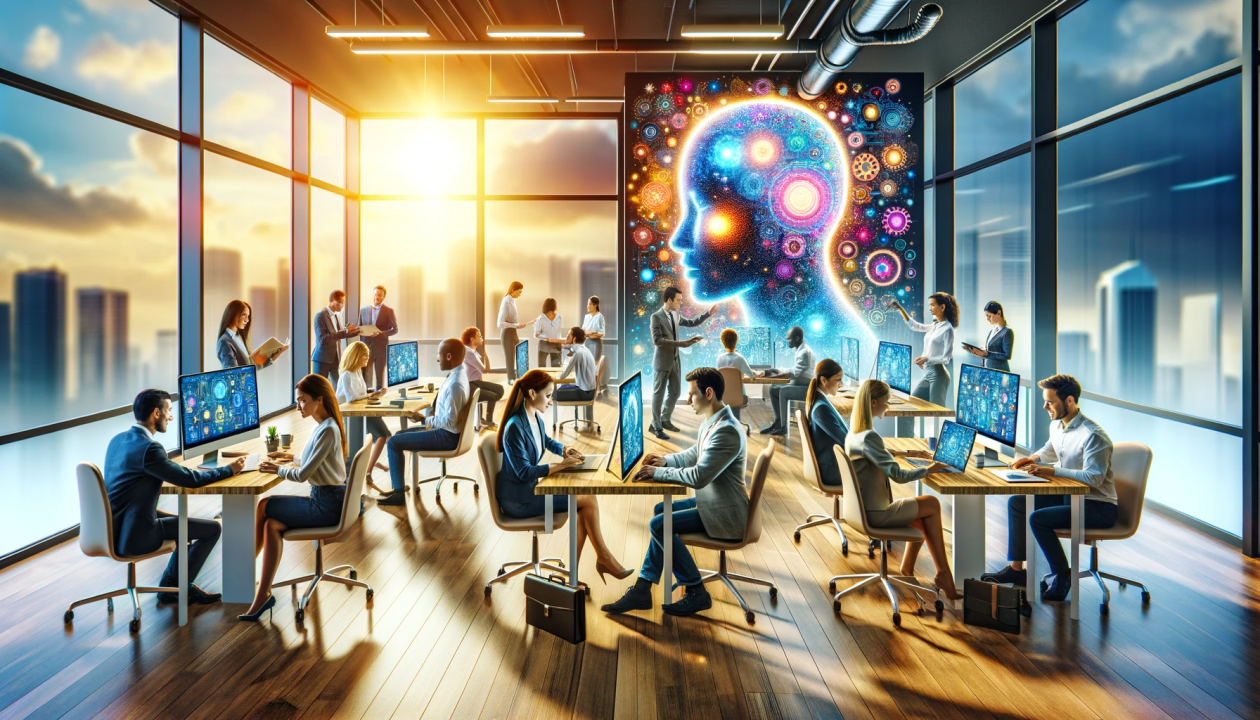In the evolving landscape of AI, particularly generative AI, McKinsey's insights on human-centered AI offer valuable perspectives for businesses and professionals. Here's a synthesis of their key points:
- Defining Human-Centered AI: Human-centered AI focuses on augmenting human capabilities rather than replacing them. It encompasses not just the technical aspects of AI but also the social arrangements necessary for its effective implementation. The fear of AI replacing jobs is often mitigated when the focus shifts to how AI can enhance job performance and create new opportunities.
- Overcoming AI Skepticism in the Workplace: A case study at Stitch Fix revealed that broad adoption of AI was facilitated by focusing on how AI can enhance the team's existing capabilities. A user-friendly interface that simplified tasks and allowed for interactive decision-making played a crucial role in the adoption of AI technologies.
- Shifting Focus to Revenue Potential: Discussions around AI often begin with its potential for automation and cost savings. However, they eventually evolve into exploring AI's potential to drive revenue growth. This shift in focus can dramatically change the energy and attitude towards AI in business contexts, uncovering untapped market opportunities.
- Impact of AI on Professional Identity: AI's integration in the workplace can significantly impact employees' professional identities, especially in creative fields. The evolution of roles and responsibilities in response to AI integration can be a transformative process for individuals and teams.
- AI and Organizational Culture: The introduction of AI can potentially create silos within organizations, as individuals rely more on AI for certain tasks. This raises questions about how these changes will affect traditional roles, teamwork, and the overall company culture.
- Future of Organizational Design with AI: AI offers the potential to transform organizational design, particularly for managerial roles. By automating mundane tasks, AI can enable managers to focus more on strategic decisions and creative aspects of their roles.
- Data Privacy and AI: The proliferation of data and its use in AI poses significant privacy challenges. Ensuring appropriate data segmentation and protection, especially in HR contexts and competitive environments, is a complex yet fundamental aspect of leveraging AI effectively.
- Risks and Professional Development in an AI-Assisted Workplace: There is a concern that reliance on AI could lead to a depreciation of expertise and professional development, particularly for junior colleagues. The experience gained through failures and learning processes is invaluable, raising questions about the balance between AI assistance and personal skill development.
These insights from McKinsey highlight the multifaceted impact of human-centered AI on businesses and employees. Understanding these dynamics is crucial for effectively leveraging AI to enhance business operations, drive revenue growth, and maintain a positive organizational culture.
We are happy to assist you in navigating through this challenge.
Article by Dirk Bode & ChatGPT, picture by ChatGPT
